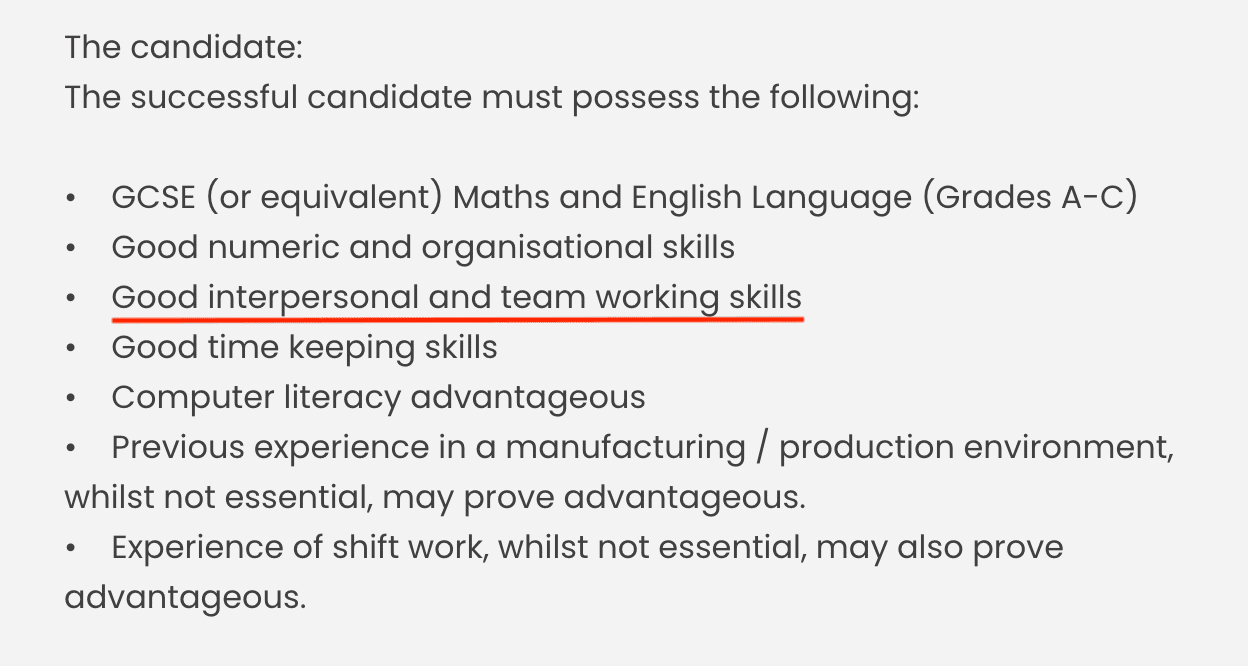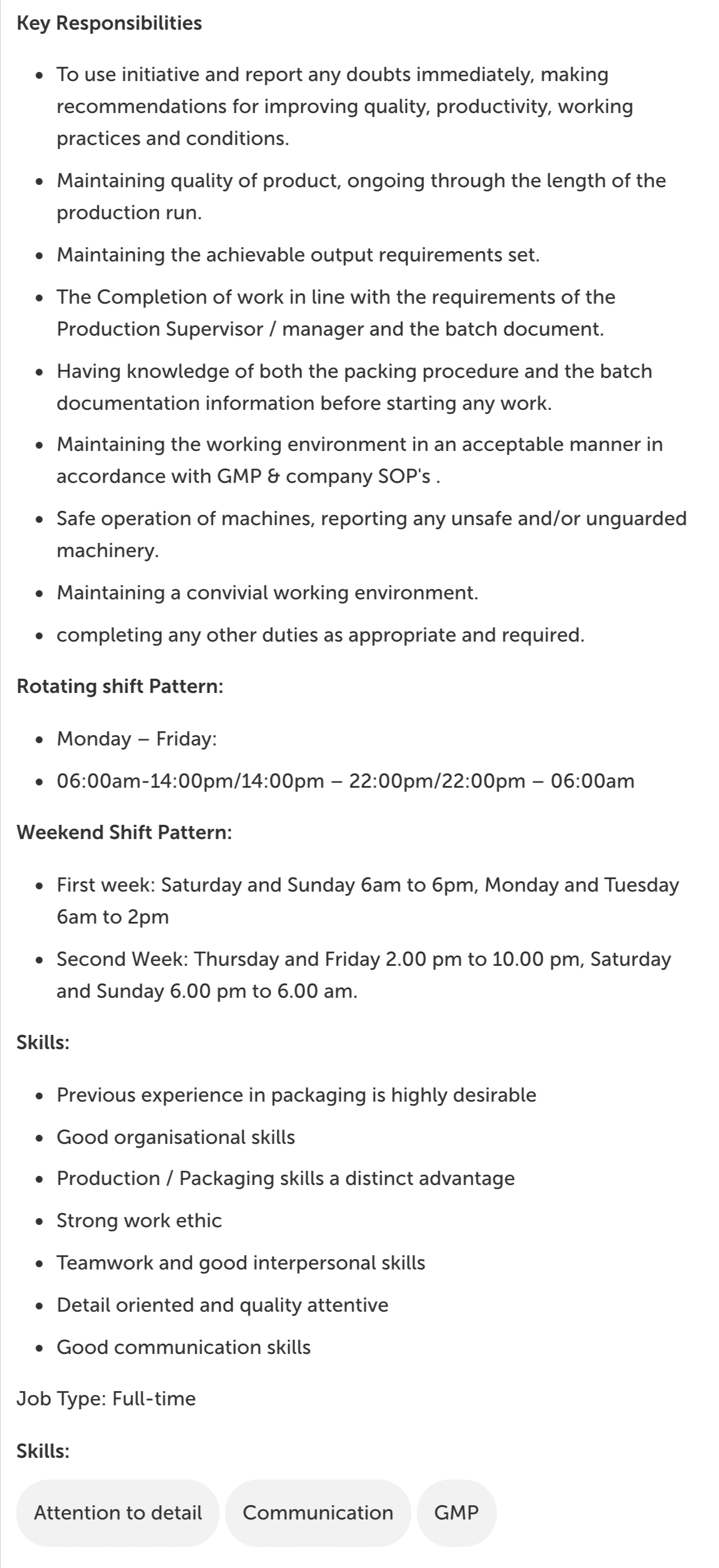If you’ve been viewing job adverts as a basic description of a role’s duties and responsibilities, and the education and employment background they want from a candidate – you’ve been reading them wrong.
A simple change in mindset will revolutionise the way you read and use job adverts.
Let’s think about how employers write job adverts…
To write a job advert, an employer had to think about the role and write down what they’re looking for in a candidate.
As a result, every job advert is packed with clues about an employer’s wish list.
The purpose of your CV is to show them that you match up to as many of those “wish list” items as possible – in as clear a way as possible.
In their ideal world, they’ll find a candidate that ticks all the boxes. But in the real world they know they’ll probably have to compromise on a few points.
There are two basic mistakes people make when reading job adverts:
- Discounting themselves and not applying, based on criteria points that an employer is willing to compromise on
- And not making the most of the clues in the advert to catch the eye of an employer
The section titled ”What the job advert is REALLY telling you” on this previous post explains how to avoid mistake number one.
The rest of this article is going to focus on mistake number 2 – finding clues and using them.
Why is it so important to use these clues?
We’ve established that a job advert is essentially an employer’s wish list.
When someone reads your CV, they’re ticking boxes in their mind as they see you meeting those points. You want to make sure you’re getting as many “ticks” as you deserve.
And as technology is advancing, these mental checklists are turning into something much more definite.
Some companies will now run CVs through software that looks for their desired criteria, so it’s more important than ever that you work hard to be clear about meeting these critical points.
You might know that “Worked well with colleagues” is the same as “Experience of team working”. You might even be sure that a hiring manager reading your CV would see that as evidence of that point. But do you trust a computer to know that?
Wouldn’t it just be best to use the phrase “team working” to avoid any confusion?
And that brings us to the central reason you can’t just send the same CV out in response to different job adverts and different employers…
Different employers value different skills and experience.
And even employers that are looking for the same skills and experience, will talk about them in different ways.
Let’s look at an example from some real life job pharma adverts…




These job adverts are all essentially asking for the same thing – a candidate who can show they are able to work in a team. But look at how differently that wish is expressed.
You could argue that a statement such as “Worked as part of a 5-person team” on a CV would meet the requirement for all of the adverts but it’s not actually speaking directly to any one of them.
Instead…
- Worked as part of a 5-person cross functional team…
- Great interpersonal skills developed after working in a 5-person team…
- Communicated with both internal and external stakeholders as part of a 5-person team…
- Working within a 5-person team required strong team-player skills and great oral and written communication…
For each of the adverts, the statements above match the requirements much more clearly and make it much more obvious to the hiring manager (or a computer!) that you’re a great fit against that wish.
To be sure your CV makes it through electronic screening or a mental checklist, you need to talk about your skills and experience in the same way that specific employer does.
Where are the clues?
To make sure you’re finding all the clues, consider four things when looking at a job advert:
- Education
- Employment history
- Technical skills
- Transferable (“soft”) skills
As you read a job advert, it can be useful to actually make a note of words or phrases used to describe the criteria in each of these 4 areas.

People commonly do well to find and address the first 3, but often leave their CV lacking in the fourth.
Transferable (or “soft”) skills are core personal skills or attributes that are relevant across ALL industries.
These are things like:
- Attention to detail
- Communication skills
- Organisation
- Problem solving
- Using initiative
- Team work
- etc
When an employer is thinking about their “dream candidate” for a job, the education or technical skills are often a given, and it’s really these personal traits that they’re thinking about. So it’s vital that once you spot them within the advert – you actually do something with them!
What to do with the clues once you find them?
We saw earlier that different employers talk about the same skill in different ways.
So the key to using the clues from a job advert to show an employer you’re a great match, is to use the same language as that job advert within your CV.
You’re not making things up, you’re just making sure that you’re framing your skills in a way that is easy for employers to see as a match to what they’re looking for.
The key places for doing this are within the personal profile section and the employment section – and we’ll take a closer look at exactly what to do, in the articles about those sections.
For now, just make sure that you’re practicing finding these clues within job adverts.
To get you started, here is an example job advert – have go at identifying clues across the 4 main areas (education, employment history, technical skills, and transferable skills). Once you’ve noted your ideas, scroll down and see what we picked out as the clues from the job advert.

- Education
None mentioned - Employment History
Previous experience in packaging is highly desirable - Technical Skills
Production / Packaging skills a distinct advantage
GMP - Transferable skills
Good organisational skills
Strong work ethic
Teamwork and good interpersonal skills
Detail oriented and quality attentive
Good communication skills
Attention to detail
Don’t worry if you didn’t catch them all on this first try – analysing a job advert is something that you’ll quickly get better at with practice!
About the Author
Claire Wilson
Content Marketing and Career Coaching
Claire runs GetReskilled’s Advanced Career Coaching Programme – our specially devised job hunting course that helps our trainees take that final step into employment by leading them through the job hunting process. She is extremely enthusiastic about helping people reach their final goal of employment in their new career path.
Claire has a BSc (Hons) in Medical Biology from Edinburgh University and spent 7 years working in the pharmaceutical and medical device industries.


Post Your Comments Below